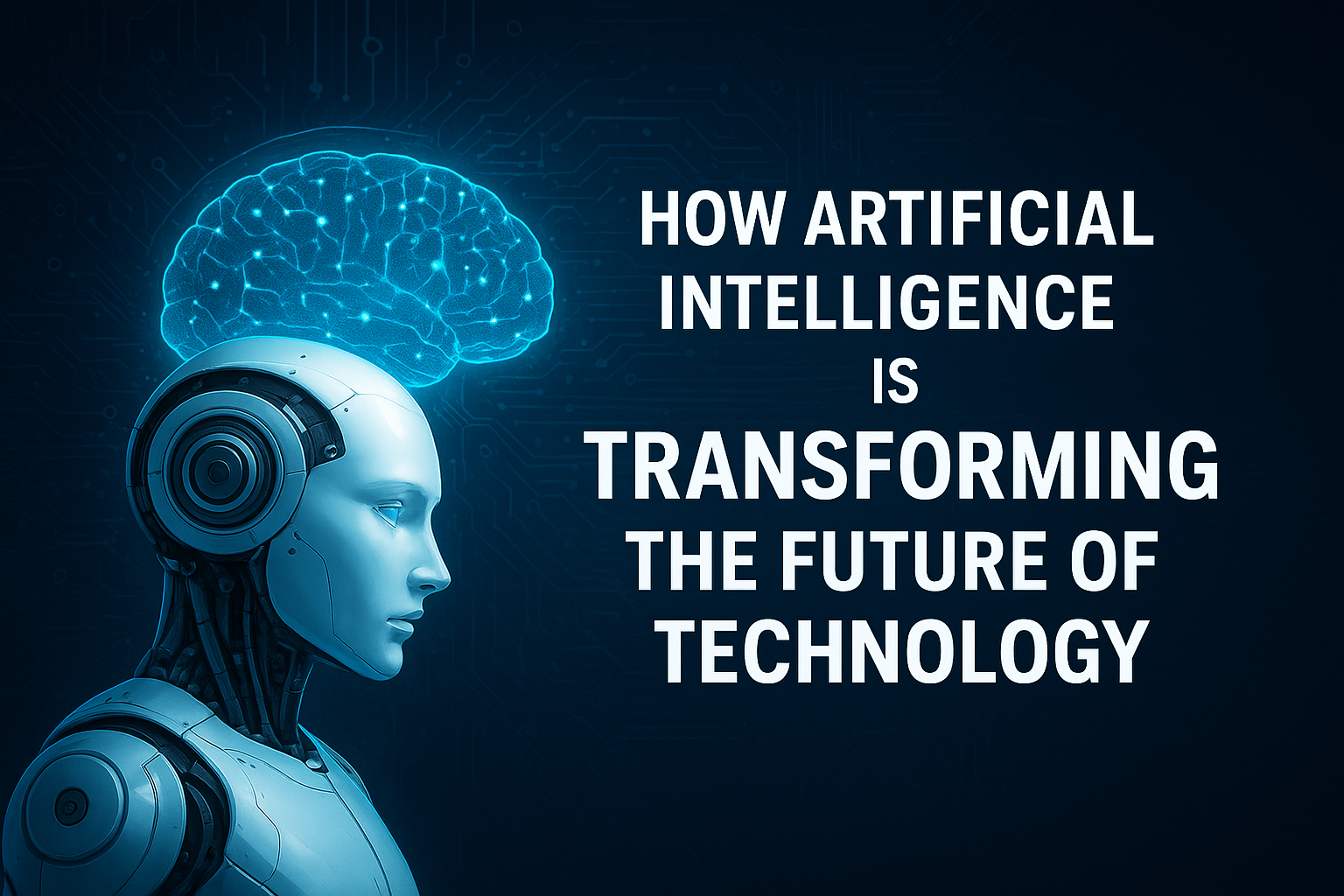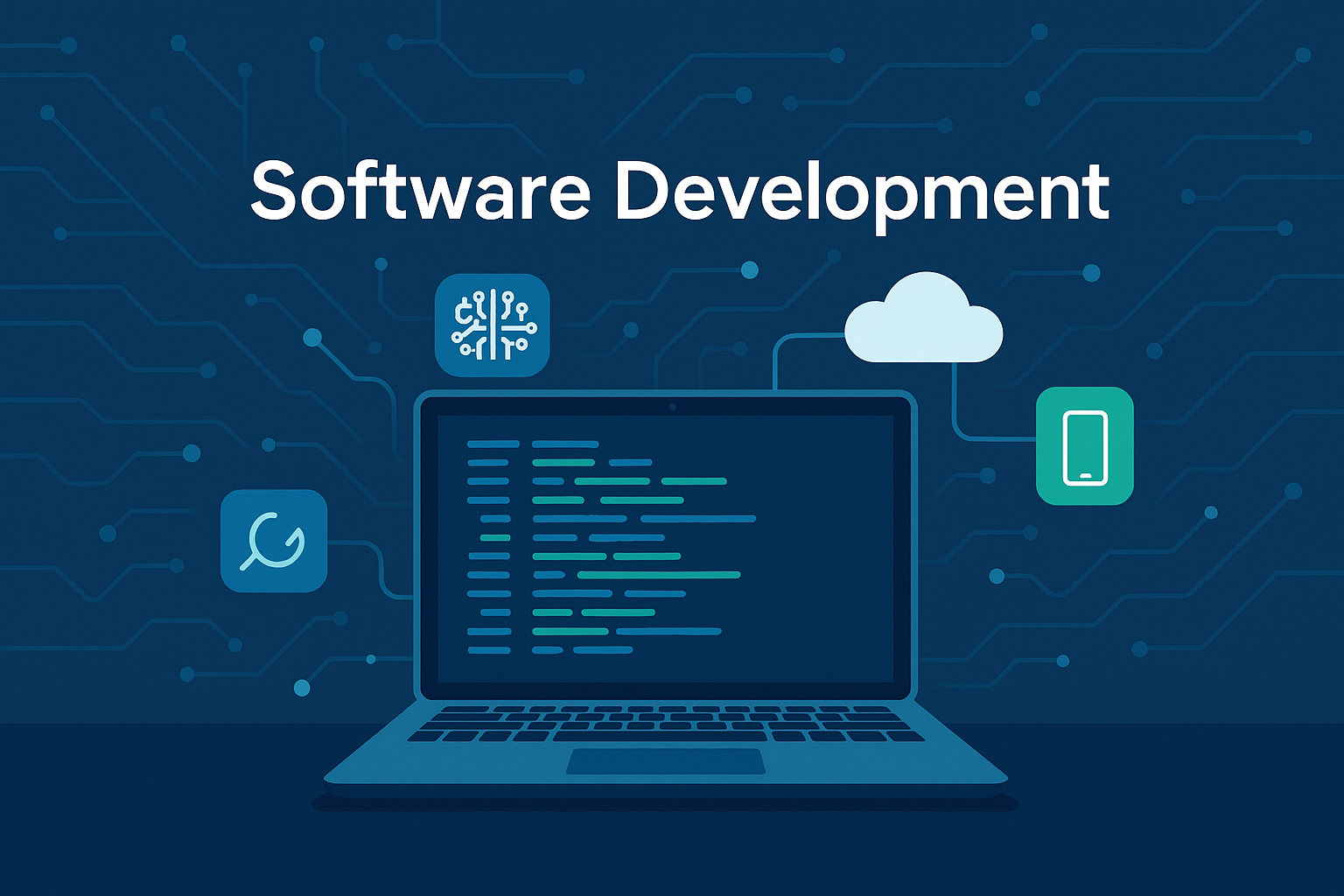
How Artificial Intelligence is Transforming the Future of Technology
Artificial Intelligence (AI) has transitioned from being a concept in science fiction to becoming a key force behind real innovations across multiple industries.
Introduction
Artificial Intelligence (AI) has progressed beyond a mere science fiction concept; it stands as one of the most transformative forces of the 21st century. By enabling machines to learn, reason, and make decisions similarly to humans, AI is reshaping industries, driving innovation, and redefining our lives and work.
In recent years, the integration of AI into everyday life has accelerated, driven by advancements in computing power, big data, and machine learning algorithms. From virtual assistants like Siri and Alexa to predictive analytics in finance, the impact of AI is evident. Let us explore how AI is revolutionizing key sectors and what it means for the future.
1. AI in Healthcare 🏥
The healthcare sector has emerged as one of the most significant beneficiaries of AI. The combination of machine learning, predictive analytics, and computer vision has created powerful tools that save lives and improve medical outcomes.
Early Disease Detection: AI-powered systems can analyze medical images (X-rays, MRIs, CT scans) with a precision that matches or even exceeds that of human radiologists. This capability allows for the early detection of conditions such as cancer, heart disease, and neurological disorders.
Personalized Treatments: By analyzing patient data, AI can recommend personalized treatment plans tailored to an individual’s genetics, lifestyle, and medical history.
Robotic Surgeries: AI-driven surgical robots assist doctors in performing high-precision procedures, thus reducing risks and improving recovery times.
Virtual Health Assistants: Chatbots and voice assistants help patients with appointment scheduling, answering queries, and monitoring basic health metrics.
Research indicates that AI could significantly lower healthcare costs while enhancing patient outcomes globally.
2. AI in Business 💼
Businesses across various sectors are harnessing AI to gain a competitive advantage, streamline operations, and improve customer experiences.
Automation: AI streamlines repetitive tasks such as invoice processing, customer inquiries, and supply chain management.
Chatbots & Customer Support: AI-driven chatbots provide round-the-clock support, reducing wait times and enhancing customer satisfaction.
Predictive Analytics: Companies employ AI to assess market trends, forecast demand, and manage risks. For instance, AI assists retailers in predicting consumer behavior and recommending products.
Fraud Detection: Financial institutions utilize AI to identify unusual activities in transactions, thereby minimizing fraud.
The use of AI in business is increasingly seen as a necessity for survival in a highly competitive digital marketplace.
3. AI in Transportation 🚗✈️
The transportation sector is undergoing a profound transformation, driven by AI innovations.
Self-Driving Cars: Autonomous vehicles leverage AI to analyze real-time data from sensors, cameras, and GPS, improving driving safety and efficiency.
Traffic Management: AI systems optimize traffic signals, predict congestion, and reduce travel time in urban areas.
Logistics Optimization: Delivery companies such as UPS and FedEx utilize AI for enhanced route planning, reduced fuel consumption, and expedited deliveries.
Aviation & Railways: AI supports predictive maintenance in aircraft and trains, helping to avert breakdowns and delays.
By 2030, AI-driven transportation could significantly decrease road accidents and emissions, promoting smarter and safer cities.
4. AI in Education 📚
The education sector is embracing AI to cultivate personalized and interactive learning experiences.
Smart Tutors: AI platforms serve as digital tutors, providing immediate support and tailored explanations.
Adaptive Learning: AI adjusts lesson difficulty based on student performance, ensuring that no learner is left behind.
Automated Grading: Teachers can save time by using AI to evaluate assignments and tests.
Virtual Classrooms: AI-powered tools have made remote learning more engaging through simulations, quizzes, and gamified lessons.
AI is making education more inclusive, accessible, and customized to individual learning needs.
5. Ethical Considerations ⚖️
While AI offers substantial benefits, it also presents serious ethical challenges that must be addressed.
Data Privacy: AI systems rely on vast amounts of personal data, raising concerns about misuse and security risks.
Job Automation: Many repetitive and manual jobs are being replaced by AI, leading to concerns about unemployment and income inequality.
Bias & Fairness: If AI is trained on biased data, it can perpetuate existing inequalities in hiring, lending, and law enforcement.
Responsible AI: Governments and corporations must establish guidelines to ensure ethical and transparent use of AI.
The future of AI depends on its responsible development and application.
Conclusion 🌍
Artificial Intelligence is not just another technological trend—it is the foundation of the digital future. Its ability to learn, adapt, and solve complex challenges positions it as a transformative force across various industries.
From advancements in healthcare to innovations in business, smarter transportation, and personalized education, AI is redefining possibilities. However, society must also strike a balance between innovation and responsibility to ensure that AI benefits everyone while minimizing associated risks.
The journey into the AI era has only just begun, and its influence will continue to grow over the coming years.

